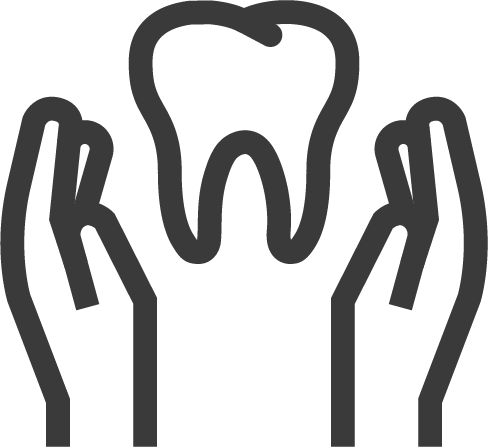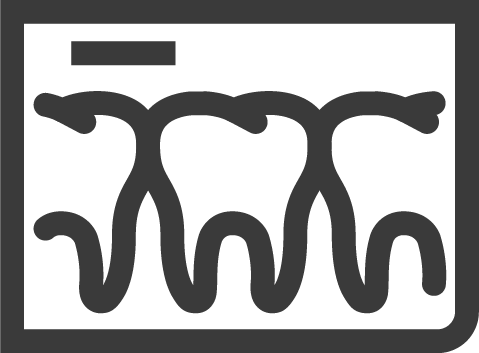.jpg)

Dr. Hlavaty performs the majority of surgical procedures here in our office. If your procedure is something more complex (such as severely impacted wisdom teeth or jaw surgery), he will likely refer you to one of the trusted maxillofacial surgeons that he works with here locally.

Dr. Hlavaty will talk you through your recommended treatment options, the surgery related to the treatment plan, what to expect the day of the procedure, and how to prepare.

Dr. Hlavaty works with concious sedation, IV sedation, and general anesthesia regularly, and will recommend the right sedation option based on your surgery and your needs. For IV sedation or general anesthesia, you may need to have an additional consultation with our Dental Anesthesiologist.

You will need to arrange for someone to drive you to and from your appointment the day of your surgery if you are having sedation. Dr. Hlavaty will make specific recommendations for you, but you should plan for a day off and to have someone be with you for the rest of the day after your surgery.

Give yourself a few days to heal after surgery. Swelling and discomfort for the next 24 hours is normal. Keep your head elevated and use ice packs to reduce swelling. Take any medications as directed by your doctor. And stick to a soft food diet for the first 48 hours after surgery.
Extractions are when we pull (remove) teeth and are typically done for teeth that have been damaged by oral injuries, gum disease, infection, or tooth decay. Extractions may also be necessary in preparation for restorative treatments, such as dentures or dental implants.
For example, a full arch of dentures will require all remaining teeth of that arch to be removed so that the denture can seat completely over the gums. Some extractions are simpler than others, but these procedures are usually classified as oral surgeries.
Bone grafts, or bone tissue transplants, are used to repair missing, weak, or infected bone within the body. The most common use of bone grafting in dentistry is in preparation of placing a dental implant.
After a tooth is lost, the bone of the jaw begins to resorb over time if not replaced. This weakened jaw bone needs to be strengthened in order to properly support the post of a dental implant. Bone grafting uses processed bone minerals that stimulate bone growth and the formation of new bone. Healing and recovery from the surgery is similar to that of a tooth extraction, but it will take 2 to 6 months for bone to regenerate.
A sinus lift (also known as a sinus graft, sinus augmentation, or sinus procedure) is a surgery that adds bone to your maxillary sinus (upper jaw in the area of your molars and premolars). This is done when implants will be placed in that area to keep a separation between the sinus (hollow space) & the implant in the surrounding bone.
Tooth loss can cause a collapse of the socket (hole where tooth was), which typically leads to a loss in height and width of the surrounding bone, as well as a loss in overall volume of the bone as the body heals. A sinus lift will graft extra bone under the maxillary sinus, allowing a dental implant to be successfully placed and your smile to be restored.
Alveoloplasty is a common dental procedure in which the alveolar ridge (the bone that holds the teeth in place) is surgically smoothed and/or re-contoured. It may be a stand-alone procedure, may be done at the time of a tooth extraction, or performed to prepare a patient for a denture or dental implant. The recontouring results in a more suitable shape for the dental implant or prosthetic, reducing complications, increasing longevity, and improving the stability of the dental appliance as well as maintaining overall patient comfort.
Tori are an overgrowth of bone that can form in your upper or lower jawbones. Extra bone found on the roof of your mouth is called “torus palatinus”. Tori found on the inside (tongue side) of the lower jaw are called mandibular tori.
Most tori are benign (non-cancerous) and don’t require any treatment. In fact, tori usually only need to be removed for two reasons:
1. If a patient is in need of a full or partial denture, their tori may need to be removed to ensure a comfortable and complete fit of the dentures.
2. If the tori are interfering with the movement of the tongue and causing issues with proper speech, they may need to be removed or reduced to restore proper speech.
Wisdom teeth are the third set of molars, and are a natural part of our mouths. However, they grow in much later than the rest of our teeth, usually between the ages of 17-25. Because of this, many people do not have enough space in their mouths for wisdom teeth, particularly if they have had orthodontic work.
That means that the wisdom teeth can cause issues with your other teeth when they begin to erupt. They may cause your other teeth to shift and become misaligned, or they may become impacted and get infected. Wisdom teeth tend to cause discomfort, which is why most people choose to have them extracted when they begin to emerge.
A wisdom tooth is considered “impacted” if it gets stuck beneath your gum or doesn’t have enough room to erupt. Extractions are recommended for impacted wisdom teeth as they are more prone to tooth decay, disease, and other dental problems.
To begin your procedure, the dentist will make an incision in your gums to remove any problematic bone before extracting the tooth. The impacted area will be closed with stitches and packed with gauze to aid the healing process. Sedation options will be available to help make your procedure relaxing and painless.

It completely depends on the procedure and the complexity of your case. Simpler procedures, such as tooth extractions, can take minutes; more time may be needed to properly sedate you. Complex procedures, like placing dental implants for a full arch or teeth, can take hours. Your oral surgeon will give you a thorough explanation of the procedure, tell you how to properly prepare, and let you know what to expect on the day.
The cost of oral surgery varies from procedure to procedure. Similar to time commitment, simpler surgeries will be less expensive and complex surgeries will be more expensive. If your dental and/or medical insurance does not cover your oral surgery, consider loans or a payment plan to get the care you need.
Possibly, depending on your insurance provider and coverage. You should talk to your dental and medical insurance providers to see if your recommended oral surgery is covered. It may also be worthwhile to file your claim with both your dental insurance provider and your medical insurance provider, since the surgery may qualify as a medically necessary procedure.
